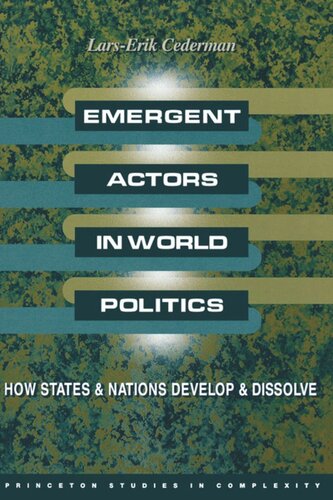

Most ebook files are in PDF format, so you can easily read them using various software such as Foxit Reader or directly on the Google Chrome browser.
Some ebook files are released by publishers in other formats such as .awz, .mobi, .epub, .fb2, etc. You may need to install specific software to read these formats on mobile/PC, such as Calibre.
Please read the tutorial at this link: https://ebookbell.com/faq
We offer FREE conversion to the popular formats you request; however, this may take some time. Therefore, right after payment, please email us, and we will try to provide the service as quickly as possible.
For some exceptional file formats or broken links (if any), please refrain from opening any disputes. Instead, email us first, and we will try to assist within a maximum of 6 hours.
EbookBell Team

4.0
76 reviewsThe disappearance and formation of states and nations after the end of the Cold War have proved puzzling to both theorists and policymakers. Lars-Erik Cederman argues that this lack of conceptual preparation stems from two tendencies in conventional theorizing. First, the dominant focus on cohesive nation-states as the only actors of world politics obscures crucial differences between the state and the nation. Second, traditional theory usually treats these units as fixed. Cederman offers a fresh way of analyzing world politics: complex adaptive systems modeling. He provides a new series of models--not ones that rely on rational-choice, but rather computerized thought-experiments--that separate the state from the nation and incorporate these as emergent rather than preconceived actors. This theory of the emergent actor shifts attention away from the exclusively behavioral focus of conventional international relations theory toward a truly dynamic perspective that treats the actors of world politics as dependent rather than independent variables.
Cederman illustrates that while structural realist predictions about unit-level invariance hold up under certain circumstances, they are heavily dependent on fierce power competition, which can result in unipolarity instead of the balance of power. He provides a thorough examination of the processes of nationalist mobilization and coordination in multi-ethnic states. Cederman states that such states' efforts to instill loyalty in their ethnically diverse populations may backfire, and that, moreover, if the revolutionary movement is culturally split, its identity becomes more inclusive as the power gap in the imperial center's favor increases.